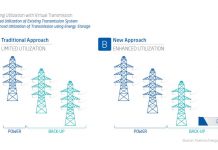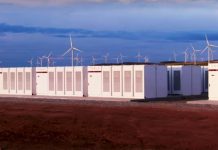John Petersen
In November 2008 I wrote an article titled “Alternative Energy Storage: Cheap Will Beat Cool” where I created a short list of 13 pure play energy storage companies that I divided into two classes; companies with cheap chemistries and companies with cool chemistries. My premise was simple, the best affordable technology always wins out over best available technology and companies that cater to the masses have greater profit potential than companies that cater to the elite. The following graph compares the performance of my original groups and the Dow since the date of that article.

Over the last two years I’ve added five pure play energy storage companies and two EV manufacturers to the list and broken the list into six peer groups to facilitate comparisons. The one year and fourth quarter performance for all 20 companies is summarized in the following table. Where necessary, historic prices have been adjusted for reverse and forward stock splits. The starting point for Tesla Motors (TSLA) is its June 29, 2010 IPO price.

My worst bullish call year last was C&D Technologies (CHHP.PK), which took a huge intangible asset write-down in September and was forced into a debt restructuring that transferred over 90% of the company to creditors and will limit its upside potential. My other major disappointment was Axion Power International (AXPW.OB), which got crushed by market conditions that were unrelated to its business and seems well positioned to outperform in 2011. My worst bearish call was Valence Technologies (VLNC), which makes a good product but is burdened by the balance sheet from hell.
Since I only track a few companies and tend to take an accountant’s view when it comes to value comparisons, I maintain a simple spreadsheet that starts with the last reported quarterly numbers, factors in changes from subsequent transactions, and compares the adjusted financial statement realities with market valuations. That spreadsheet, which is summarized below, then serves as a starting point for more detailed analysis of which stocks seem likely to rise and which seem likely to fall in coming months.

I remain bearish on Ener1 (HEV) because I see two technical accounting issues that could arise in this year’s audit and would have a negative impact if things went badly. First, Ener1’s ownership of 48% of the voting power of Th!nk could require a consolidation that would move Th!nk’s losses onto Ener1’s income statement and impair the $58.6 million carrying value of its investment in Th!nk. Second, Ener1 is carrying $61.7 million of intangible assets and goodwill on its balance sheet and after watching C&D take a $60 million intangible asset write-down in September and Ultralife (ULBI) take a $14 million write-down last week, it’s hard to be confident about Ener1’s intangible asset values.
I remain bearish on Valence because it’s survived for years on loans from a principal stockholder and those debts will have to be paid from earnings, stock sales or conversions. Valence makes a good product and is focused on an attractive battery market for medium-duty electric delivery vehicles – but it’s still losing about $19 million a year and a $75.2 million equity deficit is a very deep hole. In my experience, investment bankers and institutional investors are not kind to companies that are negotiating from a position of weakness and need substantial capital for future growth.
Most investors know that 2010 was not a good year for Chinese companies and the storage sector was no exception. After watching them develop over the last couple years I’m increasingly bullish on Advanced Battery Technologies (ABAT) and China Ritar Power (CRTP). These are solid rapidly growing companies that trade at very low multiples of book value and sales. I have to believe they’ll both be stellar performers over the next couple years.
In the electric vehicle space I believe Kandi Technologies (KNDI) is far more attractive than Tesla because its valuation multiples are far lower and Kandi will be selling cheap basic transportation to first-time car buyers in China while Tesla focuses on the eco-bling crowd. Given its high profile partnership with China’s biggest electric utility, its sensible business model and its obvious ability to access decision-makers within the Chinese bureaucracy, I will not be surprised if Kandi accomplishes great things over the next couple of years.
ZBB Energy (ZBB) and Axion Power remain my two favorite speculations. ZBB seems to have turned a corner recently with the completion of a three-year validation test by Australia’s Commonwealth Scientific and Industrial Research Organisation. While I’m not objective when it comes to Axion because I poured four years of my life and a large chunk of my fortune into the company, its progress over the last year has been impressive and any time I see a $47 million market cap surrounded by multi-billion dollar partners and potential customers I pay attention.
It will be interesting to see whether my predictions can be generally right for another year. I’ll revisit this list on a quarterly basis and either gloat or eat crow as appropriate. In the meantime I’d like to wish everyone a Happy New Year and a prosperous 2011.
Disclosure: Author is a former director of Axion Power International (AXPW.OB) and holds a substantial long position in its common stock.








John,
Thank you very much for educating me and others on the energy storage sector, and having the balls to admit to eating crow when your predictions don’t come out as hoped for.
Hope you will stay active for a lot of years, since your approach is very unconventional and therefore very intellectually interesting.
Regards,
Alain from Belgium
I learned ages ago that you can’t take credit for the good calls without owning the bad ones, or the ones that are simply delayed.
There is no snappy comeback to “I got that one wrong.”